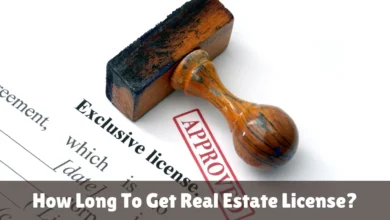
A life estate is an interest in the property of two or more persons, one person has the right to possess the property during his life and the other person has the right to possess the property when the first individual dies. The holder of the life interest is called the life tenant and has the lifetime occupancy and use of the property. The one with an expectancy of the future interest referred to as the remainder man will benefit by receiving the property upon the death of the life tenant.
Ownership In A Life Estate
As mentioned earlier, a life estate is a type of property right; therefore, ownership in a life estate refers to the ownership of a property right that allows a person to use the enumerated property for the duration of his or her life.
It divides the ownership of the property between two parties: The life tenant is the person who has the rights of ownship of the property as well as possession throughout his/her lifetime which is a limited estate, while the remainderman is the person who gains ownership of the property once the life tenant dies, it is also called remainder interest. A life tenant is an individual or a party with the legal ability to use the property for his/her whole life, and the remainderman is a party who gains the rights to the property upon the life tenant’s death.
The Life Tenant’s Ownership
The life tenant is the person who has the present rights to possess the property under the entail. They also have the right, in common with the shareholders, to peacefully enjoy the property during their lifetime. It implies that it can use the property, add to its value any time and gain from it through rent, sales of agricultural produce among others.
One needs to understand that a life tenant only has a right of occupancy in the property for the duration of their life only. They cannot sell or transfer the property to another person since their share on the property is extinguish on their death. The life tenant also has the duty of treating the property as his/her own and meet all the expenses incurred in the management of the property in form of taxes, and insurance among others.
The Remainderman’s Ownership
The remainderman, as the name suggests, is the individual who is to receive the future ownership to the said property. This interest becomes effective upon the death of the life tenant is the answer to the question involving this topic. But until then the remainderman does not have any legal right in regard to the possession or use of property.
The legal real estate defines a remainderman without possession as he or she has an expectation in the property. To mean that their ownership rights are structures and cannot be revoked. The remainderman has the ability to receive the property and take over the property upon the death of the life tenant.
However, it is worthy of note that the creditor of the life tenant cannot attach the interest of the remainderman. The law often shields the remainderman’s interest from the legal processes that may result from the life tenant’s defrcosts of debts or legal processes that the life tenant gets into.
Benefits
- Avoiding probate: With the assistance of life estates, the application of probate becomes unnecessary hence time consuming and expensive.
- Reducing estate taxes: Life estates are advantageous in lessening the estate taxes since the property is taken out of the life tenant’s estate.
- Smooth transition of property ownership: It is for this reason that life estates can be helpful in the transfer of property from one generation to the next one.
- Providing a home for a family member or friend: One should note that he can use the Life Tenancy for making a home for a family member or a friend for the entire life duration.
Types
Conventional Life Estate
This type of life estate is the most widespread one, when the life tenant has a present benefit and the remainderman receives a future interest.
Lady Bird Life Estate (Enhanced Life Estate)
Again this type of life estate offers the life tenant a higher degree of control over the property as well as the power to alter the same.
Creating A Life Estate
- Deed: A Life Tenancy can be created through a deed notwithstanding this transfer property, from one owner to the life tenant and the remainderman.
- Will: Another is that the life estate can be created through a will since the property is passed on to the life tenant and remainderman after the death of the owner.
- Trust: Such a property can also be under a trust whereby the trust holds it for the absent owner and the person who will take over or have rights of using that property in future.
Rights And Responsibilities Of The Life Tenant
This case brings out the rights and responsibilities of the life tenant of property that has been legally passed on to him or her by way of inheritance.
- Right to use and occupy the property: Also known as the beneficiary, the life tenant has a right in personam of enjoying the rents and profits of the property for their natural lifetime.
- Responsibility for maintaining the property: Life tenant has the obligation of caring for the property including paying property taxes.
Rights And Responsibilities Of The Remainderman
Though, rights and responsibilities of the remainderman can be as follows:
- Future interest in the property: The remainderman has a future interest because they only enjoy the benefits of the property after the life interest holder does. While the life tenant enjoys the property and its rental income, the remaindermen is entitled to the property and its use in the life tenant’s death.
- No rights to the property until the life tenant’s death: The remainderman will not be able to receive any part of the property until the death of the life tenant; however, they can participate in the management of the property.
Transfer Of Property In A Life Estate
- Deed: Basically, this form of tenancy can be created if the owner executes a deed to transfer the property in them. The deed releases the life tenant’s rights and assigns the interest to another person, giving a new ownership.
- Will: It is possible to assign the title in a Life Tenancy either under the will. The will provides that the life tenant’s rights in the property are transferred to another person after you are gone, so succession is not an issue.
- Trust: You can also convey the life estate by way of a trust through which the property is held for use of both the life tenant and the remainderman.
Tax Implications Of A Life Estate
- Gift tax: The situations in which the property transfers to a Life Tenancy may be subject to gift tax.
- Estate tax: This paper presented information suggesting that the property in a Life Tenancy may be included in the life tenant estate for the estate tax purpose.
Limitations Of A Life Estate
This state of affairs is likely to result in the following main limitations of a life estate;
- Inflexible: Life estates can be rather rigid and may prove undesirable in certain circumstances.
- Difficult to terminate or modify: After formation, Life Tenancy is not easy for a person to end or alter, modify.
Life Estate vs. Other Estate Planning Tools
- Trusts: Despite the development of other more flexible Tenancy options for estate planning, Life Tenancy is frequently employed together with trusts.
- Wills: Life estates can be used with wills as one of the tools of estate planning if the relevant goals are to be achieved.
- Other estate planning tools: Life Tenancy is used individually or together with other estate planning instruments to accomplish some objectives. Theoretically, estate planning is an open sphere which includes several possibilities; among them, Life Tenancy is considered to be one of the most suitable.
Conclusion
This estate planning instrument is well known under the name of life estate and allows two or more persons share the ownership of the property. It is a type of concurrent estate where one party has the legal ownership of a property for their lifetime known as the life estate while the other party also has a right to own the same property in the future upon the demise of the former is called future interest. The life tenant is given the legal right to occupy ad use the property in question throughout their lifetime. The remainderman gets a chance to own and control the property once the life tenant dies he or she lost all the rights to the property.




